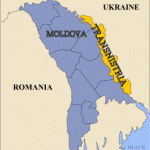On May 13-15, 2012, over thirty non-governmental experts from Moldova, Transnistria, Russia, Ukraine, the OSCE, the European Union, and the United States (including the representative of Strategic and Security Studies Group) convened the second meeting of the Transnistria Conflict Resolution Task Force at the Frankenwarte Academy in Würzburg, Germany. The Task Force is organized and supported by the Carnegie Endowment for International Peace, the Friedrich Ebert Stiftung,the Institute for World Economy and International Relations of the Russian Academy of Sciences, the European Union and United Nations Development Program,and the Robert Bosch Stiftung.
Inspired by the Dartmouth Dialogues, which promoted “sustained dialogue” between the West and the Soviet Union during the Cold War, the Task Force aims to develop a core group ofexperts and civil society leadersrepresenting all stakeholders in the conflict, who are able to engage with one another through twice annual meetings designed to build trust and mutual understanding. After two successful meetings, Task Force members have begun to speak of a “Würzburg Process”that facilitates open dialogue, bold thinking, and astrongcommitment to finding common ground on the Transnistrian conflict.
Building on last year’s inaugural session, Task Force members conducted two days of focused discussion addressing perceptions of the conflict from both banks of the Dniester,evaluating the interests of localand outside actors, and probing various concrete measures that could help lay the groundwork for more effective conflict resolution. Participants described the recent elections of new presidents in Transnistria and Moldova as creating a “window of opportunity” for both sides to make progress and prepare populations for a mutually acceptable final conflict settlement.
It is important to underscore that the Task Force does not exist in a vacuum but is designed to supplement other multilateral and bilateral initiatives. By virtue of its composition, the Task Force is well suited to work in parallel with the official OSCE-led5+2 negotiation process, and following this and future meetings, Task Force members will engage with official counterparts on all sides to offer advice and informal channels for communication among the stakeholders. The Task Force participants and organizers look forward to a third meeting in the Fall.
